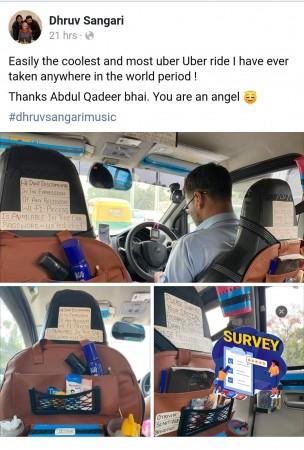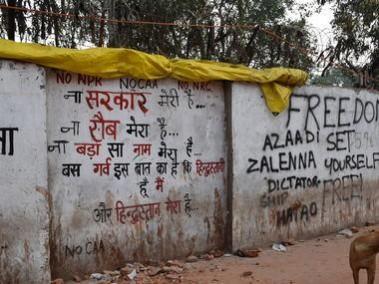On February 23, 2020, a man while travelling in Delhi metro and going towards Shaheen Bagh-Jasola Vihar station looked uneasy to Shahbaz Rizwi, a young man, who was aboard the same train and was closely watching the 50-year-old man, who had asked Rizwi that was the train going to Shaheen Bagh? When the old man got off the train at Shaheen Bagh, he took out a skull cap from the pocket and wore it. Rizwi understood that the riots that broke out on February 23 had left an entire community shaken and stirred. Well, this was just the beginning of a gruesome tale that will forever be cited as the 'Delhi violence', which left several homeless and scared.
The aftermath followed and people had all sorts of incidents to tell. There were some who stated that Hindu cab drivers are not entertaining Muslim customers and vice-versa. It felt that Delhi was split into two sections or rather communities, each trying to prove itself stronger than the other.

'The coolest Uber ride'
However, as a relief, another incident that came to light recently was a picture posted by the popular Sufi singer Dhruv Sangari when he took an Uber ride and called it the 'Coolest'.
Dhruv Sangari also known as Bilal Chishty Sangari is a Sufi and Classical Indian vocalist, composer, lyricist, savant and teacher. He is the son of well-known scholar and author Kumkum Sangari and noted painter Mahendra 'Manu' Sangari.
His Facebook post stated: "Easily the coolest and most 'uber' Uber ride I have ever taken anywhere in the world period! Thanks Abdul Qadeer bhai. You are an angel."
He was referring to a cab driven by Abdul Qadeer, who does not differentiate on the grounds of community and caste. He does not choose his customers based on their names unlike most drivers in the NCR are currently doing.

A note in his cab clearly states that "We don't discriminate in the expression of any religion."

Sangari calling him an 'Angel' received comments from his followers saying that it is important to have such people around, especially during this time.
Meanwhile, in Delhi people have changed the way they dress in order to avoid any unwanted attention from various communities and groups in order to stay safe. People have changed the way they greet people in public leaving hundreds in Delhi conscious of their identity. There are women who have changed their names for public purpose in order to hide their identity. The recent riots in Delhi and the demonisation of a certain community have resulted in a nationwide sentiment of hatred towards Muslims.

















